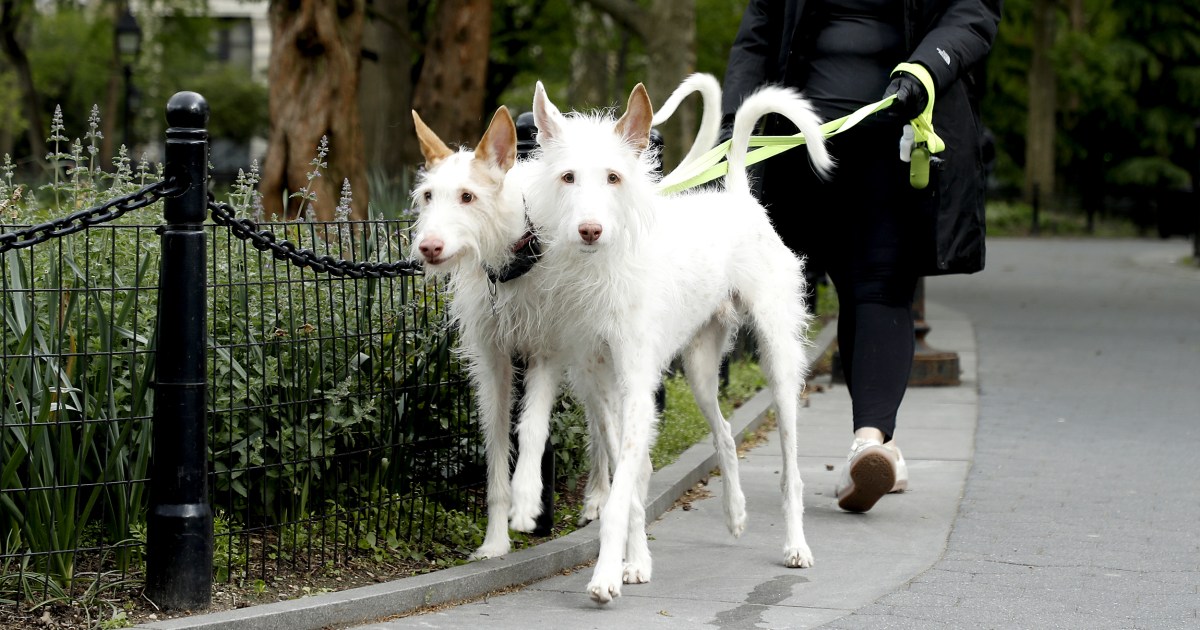
Whether it's barking at everyone who passes or aggression toward strangers, many problem dog behaviors can be helped. New research suggests the trick to training problem pups may depend on the the owner's personality, as well as the bond between human and dog.
"Almost nothing is known about how treatment success is influenced by the characteristics of the owner,” said Lauren Powell, a postdoctoral researcher at the University of Pennsylvania School of Veterinary Medicine.
To better understand what it takes to correct problem dog behavior, a team at PennVet recruited 131 dog-owner pairs to attend a veterinary behavioral program for six months.
Owners were asked to fill out a human personality assessment questionnaire and dog behavior questionnaire at the start of the study. The dog behavior questionnaire was to be filled out again at three and six months into the study. Seventy-five pairs completed the research.
In the dog assessment, owners were asked to rate their pets on topics such as:
- aggression, directed to strangers, the owner and other dogs
- fear
- separation anxiety
- trainability
- excitability
- energy level
The human personality assessment looked at broad categories, such as:
- extroversion and introversion
- agreeableness
- conscientiousness
- neuroticism
- openness to new experiences
Factors that affected behavioral therapy success included the dog's age, sex and size, the researchers found. At the end of the program, big dogs with aggression problems showed more improvement than smaller dogs. That may be because owners might be more attuned to the larger dogs' behavior because they present more of a safety risk, Powell said.
But other results surprised the team.
“Extroverted owners were more likely to see improvements in dogs’ fearful behaviors and introverted owners less so,” said Powell, lead author of the study published recently in Frontiers in Veterinary Science. "Introverted owners may find it tough to leave their dog or give it space if it is required as part of the dog’s treatment."
Helping people work through behavior problems with their canine pets is important. An estimated 3.3 million dogs end up in animal shelters in the U.S. each year and about 670,000 are euthanized, according to the ASPCA.
Dr. Katherine Houpt said owners should start training early before “mild annoyances become major issues.”
People often don’t realize that dogs are learning and reinforcing behaviors every day. Take the dog that’s always barking at the neighbors, said Houpt, an emeritus professor of animal behavior medicine at Cornell University College of Veterinary Medicine.
“When the dog is outside in the yard, he barks at everyone who goes by,” Houpt said. “He learns that people go away — because they are going away anyway — when he barks. And he becomes more and more confident of his ability to make things he doesn’t like go away by barking.”
Sometimes people aren’t even aware that on some level they actually like the dog’s bad behavior, Houpt said.
“I used to have videos of people when they described their dog’s behavior,” she said. "As the person talks about walking down the road and his dog lunging and growling at the guy on the other side of the street, he smiles."
Owners may feel the dog is protecting them, Houpt said. "Meanwhile, the dog feels like the owner is protecting him."
"can" - Google News
February 01, 2021 at 03:17AM
https://ift.tt/3oA2AfA
No bad dogs? Pet owner's personality can affect canine training success, study finds - NBC News
"can" - Google News
https://ift.tt/2NE2i6G
https://ift.tt/3d3vX4n
Bagikan Berita Ini














0 Response to "No bad dogs? Pet owner's personality can affect canine training success, study finds - NBC News"
Post a Comment